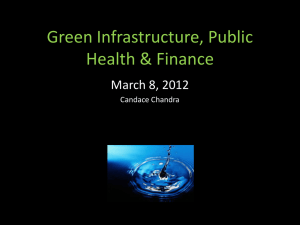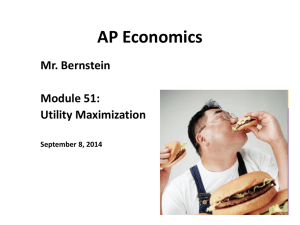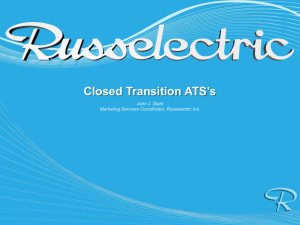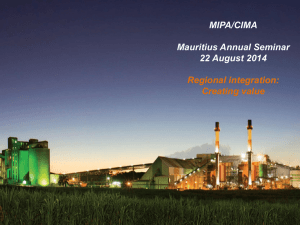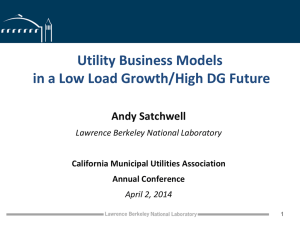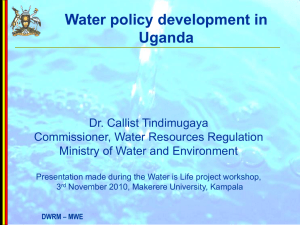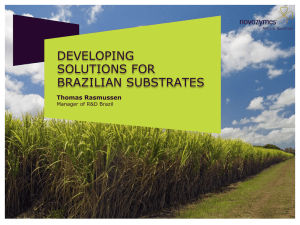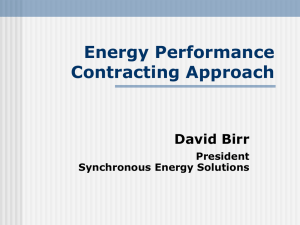CARIBBEAN DEVELOPMENT BANK
advertisement
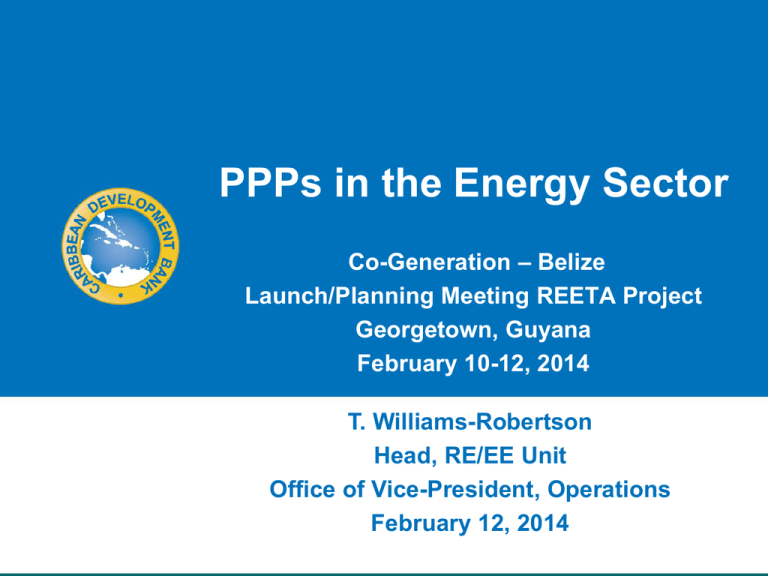
PPPs in the Energy Sector
Co-Generation – Belize
Launch/Planning Meeting REETA Project
Georgetown, Guyana
February 10-12, 2014
T. Williams-Robertson
Head, RE/EE Unit
Office of Vice-President, Operations
February 12, 2014
Sector Context
• Sector reformed under the Public Utilities
Commission Act 1999 (the PUC Act)
• State-owned vertically-integrated electric utility
monopoly transformed:
– privately-owned generation, transmission and distribution
company
– purchasing electric power from IPPs competing in the
generation market environment
– Provision of open access to utility transmission system,
subject to technical constraints and its licensee’s rights and
responsibility to expand the system and control
transmission losses
•
Licences granted for generation/ transmission/ distribution
electricity in a specified “authorised area”.
Stakeholders
• Sugar Producer – factory operations
• Newly established IPP to own and
operate co-generation plant
• Local utility to purchase power
• Public Utility Commission
• Financiers
• Government
• Cane farmers
Project Objectives
• Energy security
• Generation of cheaper power
• Environmentally-friendly power
– from 2010 electricity and steam
requirements of sugar factory supplied
– improved competitiveness in sugar
production
– Security for 5,000 cane farmers
Project Outputs
• 32.5 MW co-generation power
plant
• Electricity and steam produced
for the sugar factory
• 13.5 MW of base load power for
national grid [in Belize]
• Bagasse from factory is primary
fuel
Project Components
• 2* 90 ton/hour standard two-drum, water tube,
biomass fired boilers with super heaters
• 2 turbo-alternators, (1 x 12.5 MWe and 1 x 15
MWe)
• 1* 12.5 MWe condensing/ backpressure unit
• 1*15 MWe condensing/ extracting unit
• 2*2.5 MWe medium speed generators
• Equipment, vehicles, other
• Land = 18 hectares
• Project Management/Engineering Services
Activities Undertaken/Costs
•
•
•
•
•
•
•
Project development
Feasibility studies
Legal and taxation advice
Loan facilitation, due diligence and capital raising
Environmental Impact Assessment (EIA)
Request for proposal
Development and negotiation of Power Purchase
Agreement (PPA) with utility
• Facilitation of award of the EPC contract
• Legal representation for all financiers,
promoter/parent and for project entity
Project Financing
• Total Project Cost USD 55 mn
• CDB loan USD8.25 million (mn) – 18%
• Nederlandse Financieringsmaatschappij voor
Ontwikkelingsladen N.V. (FMO) – USD10 + 5
mn
• CIFI - USD 6 mn
• IIC – USD 6 mn
• Parent company equity – USD 18.32
• 65% long-term debt and 35% equity
Loan Security
• Senior Lenders:
- first legal mortgage over fixed and
floating assets
- debt-service guarantee from parent co.
- Loan security really = future cashflow
- business as a going concern
- ownership/commitment of promoter to
sugar operations.
Key Requirements
• Strong regulatory environment- perceived as fair
• Well-crafted/drafted PPA critical:
– Framework guaranteeing sale of power to the national grid
– Adequate tariff to cover operating costs, debt service, return
Power sales under PPA:
• 84% of revenue in 2010??
• 80% of revenue in 2011
• Promoter financially able to cover cost overruns and
complete project
• Transparent procurement of EPC contract
• Concessions from Govt. during construction/ initial
period of operation
• Adequate institutional structures in place
Key Success Factors (2)
• EPC Contractor’s design assessed by independent
international consulting firms for client and financiers
• Quality of Project Management and Engineering
Consultant
• Supervision of construction by independent engineer
for Senior Lenders
• Co-ordination in prompt decision making/flexibility by
senior lenders
• Borrower engagement/commitment/open relationship
with lenders
• Assessment of availability and quality of bagasse
supply/stockpile
• Adequate grace period cover construction/initial ops.
OUTCOMES
• First biomass power plant in a CDB BMC
• Reduction utility imports/generation/ fossil fuels
• % Utility Energy Supply provided:
– 2010: 48.2 MWh = 10%
– 2011: 70.7 MWh = 14%
– 2012: 64.5 MWh = 12%
• Power suppliers to utility ranked by cost:
– hydro purchases {lowest cost}
– bagasse co-gen purchases
– power imported from Mexico
– utility diesel- generated
Outcomes
• Reduction in power imports:
–
–
–
–
2009: 46%
2010: 33%
2011: 14.6%
2012: 16%
• Fx savings
• Environmental benefits:
– air emissions
– wastewater effluent quality
Outcomes - Employment
• Employment during construction 2009
peak:
– 55 full-time by company main contractor
– 140 labourers and semi-skilled workers by main
contractor
– 15 employed by sub-contractors
• During operational phase:
– 52 persons employed full-time
– 30 temporary employees
Outcomes – skills enhanced
Areas of enhanced worker capacity/training:
• pre-commissioning O&M and by EPC contractor
and equipment suppliers
• cross-training in sugar factory interface operations
• health safety and environment
• fire fighting training
• first Aid;
• chemical handling
• Boiler O&M training
• water treatment
THANK YOU
